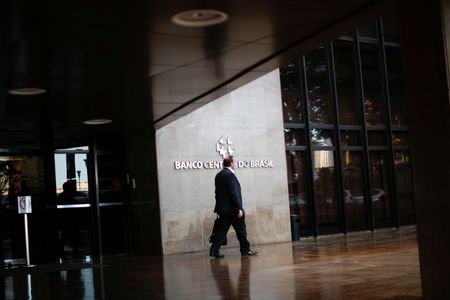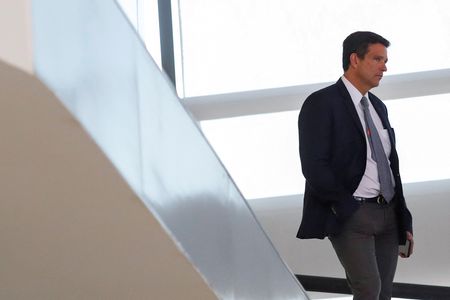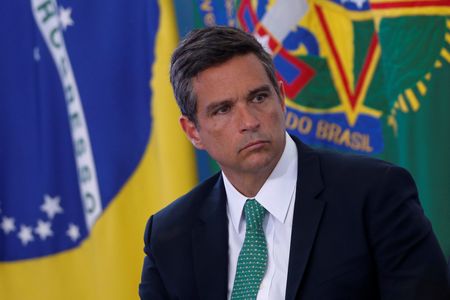BRASILIA (Reuters) – Brazil’s central bank will act independently, governor Roberto Campos Neto said Thursday, adding that the formal autonomy status showed resilience and capacity to stabilize markets.
“We are going to act independently and we are going to say that until the end of the mandate,” Campos Neto said at an event hosted by the UCLA Anderson School of Management. Appointed by former far-right President Jair Bolsonaro, Campos Neto is set to serve through December 2024.
Also on Thursday, Institutional Relations Minister Alexandre Padilha said Brazil’s government does not intend to make changes to the central bank, seeking to appease markets after leftist President Luiz Inacio Lula da Silva public criticism of the institution.
On Wednesday, Lula criticized the formal independence of the central bank, established by law in 2021. He said the independence was “nonsense” and that the current inflation target hinders economic growth. Lula returned to the subject Thursday morning, questioning the current level of the country’s interest rates after the central bank’s 12 consecutive rate hikes to battle inflation.
Campos Neto said that, in his view, the president meant that the central bank can be autonomous without this being formalized in law.
Speaking about the country’s high real interest rate, discounting inflation, Campos Neto said he believed that inflation would be around 9% if not for tax cuts promoted by the government last year.
Policymakers paused in September an aggressive tightening cycle that lifted rates to 13.75% from a 2% record low in March 2021. Inflation hit 5.79% in the 12 months to December.
Campos Neto said Brazilians have vivid memories of inflation, and highlighted that a country perceived by investors as riskier must offer more return.
After Bolsonaro supporters invaded and defaced the country’s Congress, presidential palace and Supreme Court on Jan. 8, Campos Neto said the central bank strongly condemns the attacks, adding they affect the country’s credibility.
(Reporting by Marcela Ayres; Editing by Chris Reese and David Gregorio)



